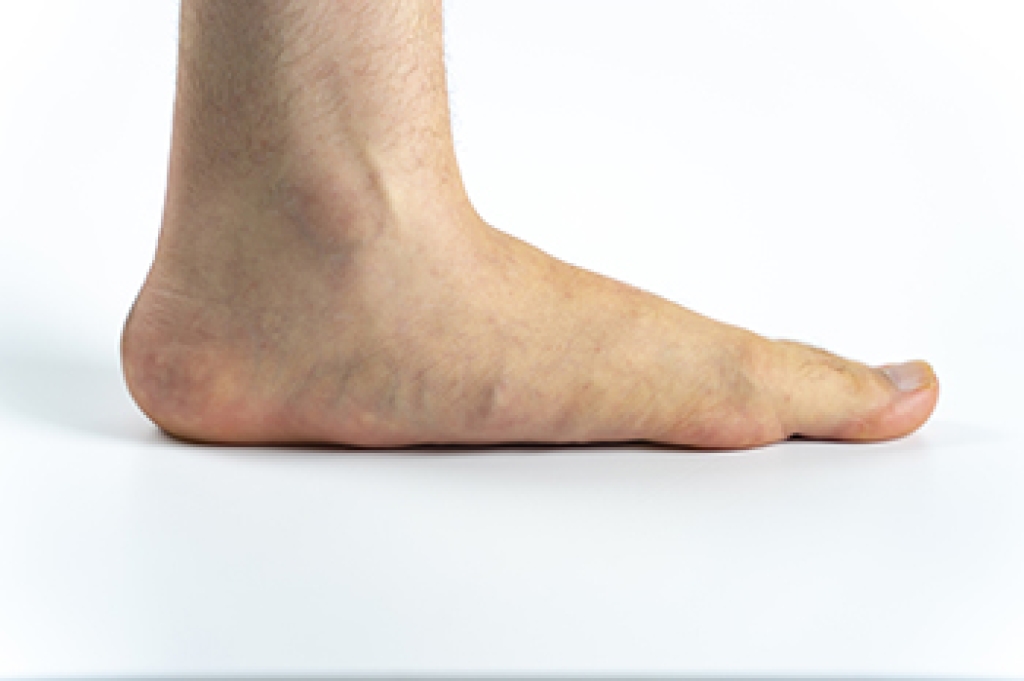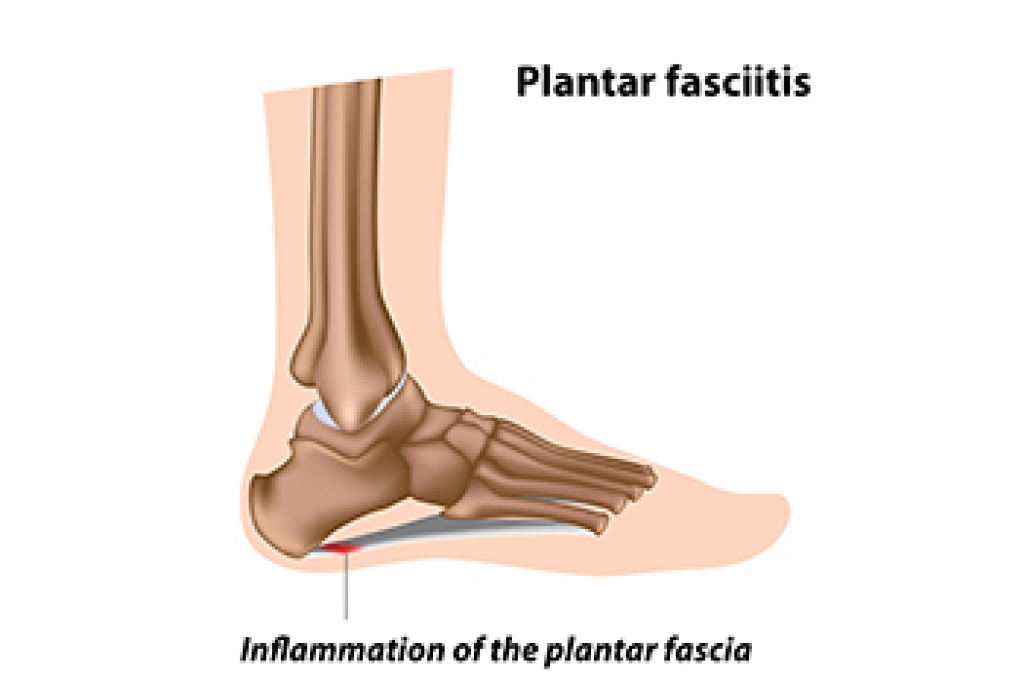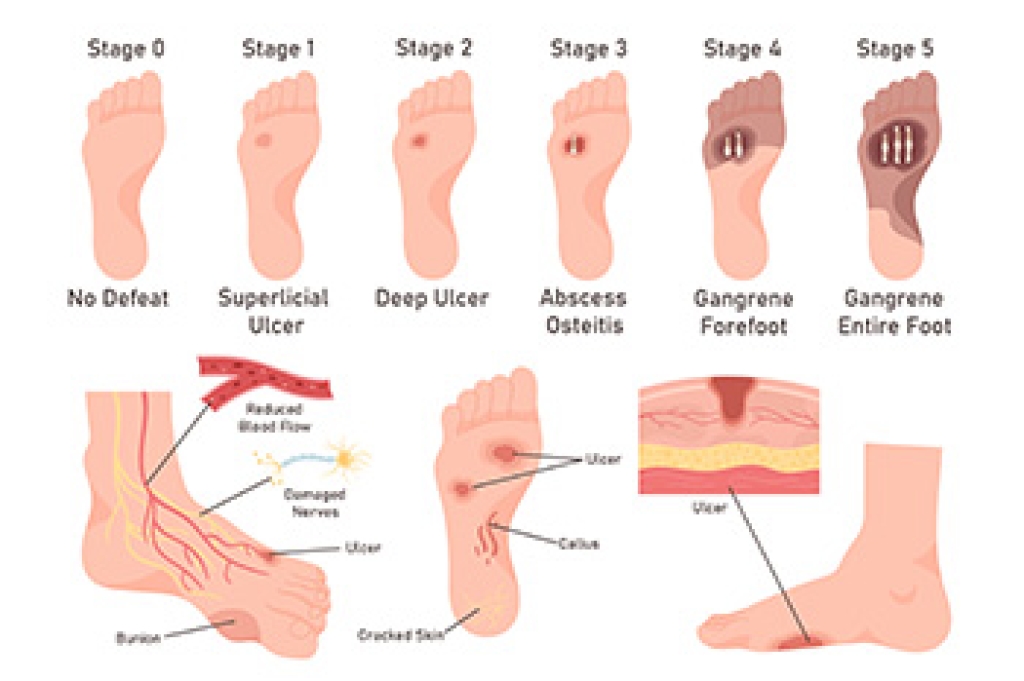Blog
Blog
Flat Feet Risks

Flat feet are a foot condition in which the arches collapse or fail to develop fully, causing the feet to roll inward during standing and walking. When the feet roll in, the ankles often tilt down toward the ground on one side, creating instability and uneven weight distribution. This altered alignment can have a domino effect on the knees and hip joints, leading to discomfort and joint strain over time. Flat feet are also linked to plantar fasciitis, foot fatigue, in addition to foot and ankle arthritis. A podiatrist can evaluate foot structure, gait, and alignment to determine the severity of flat feet. Treatment may include supportive footwear, custom orthotics, and targeted therapies. If you have flat feet and foot pain or joint discomfort is affecting your daily life, it is suggested that you schedule a visit with a podiatrist for relief and management tips.
Flatfoot is a condition many people suffer from. If you have flat feet, contact Stephanie Tine, DPM from Flamingo Foot and Ankle. Our doctor will treat your foot and ankle needs.
What Are Flat Feet?
Flatfoot is a condition in which the arch of the foot is depressed and the sole of the foot is almost completely in contact with the ground. About 20-30% of the population generally has flat feet because their arches never formed during growth.
Conditions & Problems:
Having flat feet makes it difficult to run or walk because of the stress placed on the ankles.
Alignment – The general alignment of your legs can be disrupted, because the ankles move inward which can cause major discomfort.
Knees – If you have complications with your knees, flat feet can be a contributor to arthritis in that area.
Symptoms
- Pain around the heel or arch area
- Trouble standing on the tip toe
- Swelling around the inside of the ankle
- Flat look to one or both feet
- Having your shoes feel uneven when worn
Treatment
If you are experiencing pain and stress on the foot you may weaken the posterior tibial tendon, which runs around the inside of the ankle.
If you have any questions, please feel free to contact our office located in Fort Lauderdale, FL . We offer the newest diagnostic and treatment technologies for all your foot care needs.
How Walking and Running Shoes Differ

Walking and running shoes are designed differently because the feet move in different ways during each activity. Walking places the heel on the ground first before the toes roll forward, so walking shoes usually have flexible soles that bend near the ball of the foot and an angled heel to soften each step. Running sends greater force through the feet, and many runners land on the midfoot or forefoot, so running shoes are built with thicker, lighter soles to absorb shock and reduce fatigue over distance. Shoes with inadequate support can lead to pain in the heels, arches, or ankles, including irritation of the plantar fascia or the Achilles tendon. Choosing the proper shoe for your activity can help limit stress on the feet. A podiatrist can assess gait and offer treatment options to address the problem. If you experience foot problems after walking or running, it is suggested that you make an appointment with a podiatrist for a diagnosis and treatment.
You should always make sure your running shoes fit properly in order to avoid injury. For more information, contact Stephanie Tine, DPM from Flamingo Foot and Ankle. Our doctor can provide the care you need to keep you pain-free and on your feet.
Choosing the Right Running Shoe for Your Foot Type
Improper shoe sizing can cause a myriad of problems for your feet. Shoes that don’t fit you properly can lead to muscular imbalances in your body, which can result in foot, knee, and hip injuries.
Tips for Finding the Right Running Shoe
- Make sure you have a thumb’s width of wiggle room between the end of your longest toe and the front of the shoe.
- There should be little to no slipping at the heel
- Don’t assume your size in one shoe brand will be your size in another
- Do not lace up your shoes too tightly
- Walk around in the store with your new shoes before you buy them
If you have any questions, please feel free to contact our office located in Fort Lauderdale, FL . We offer the newest diagnostic and treatment technologies for all your foot care needs.
Causes and Symptoms of Plantar Fasciitis

Plantar fasciitis is characterized by inflammation of the thick band of tissue that runs along the bottom of the foot, connecting the heel to the toes. Symptoms often include sharp or stabbing heel pain, especially with the first steps in the morning or after prolonged standing, tenderness along the arch, and swelling. Causes include overuse, repetitive stress, high impact activities, wearing improper footwear, and biomechanical issues such as flat feet or high arches. Risk factors include obesity, age, occupation, and certain sports. A podiatrist can help by evaluating foot mechanics, recommending stretching and strengthening exercises, providing custom orthotics, and offering treatments to reduce pain and inflammation. If heel pain is affecting daily activities, it is suggested that you consult a podiatrist who can accurately diagnose and treat what may be going on.
Plantar fasciitis can be very painful and inconvenient. If you are experiencing heel pain or symptoms of plantar fasciitis, contact Stephanie Tine, DPM from Flamingo Foot and Ankle. Our doctor can provide the care you need to keep you pain-free and on your feet.
What Is Plantar Fasciitis?
Plantar fasciitis is the inflammation of the thick band of tissue that runs along the bottom of your foot, known as the plantar fascia, and causes mild to severe heel pain.
What Causes Plantar Fasciitis?
- Excessive running
- Non-supportive shoes
- Overpronation
- Repeated stretching and tearing of the plantar fascia
How Can It Be Treated?
- Conservative measures – anti-inflammatories, ice packs, stretching exercises, physical therapy, orthotic devices
- Shockwave therapy – sound waves are sent to the affected area to facilitate healing and are usually used for chronic cases of plantar fasciitis
- Surgery – usually only used as a last resort when all else fails. The plantar fascia can be surgically detached from the heel
While very treatable, plantar fasciitis is definitely not something that should be ignored. Especially in severe cases, speaking to your doctor right away is highly recommended to avoid complications and severe heel pain. Your podiatrist can work with you to provide the appropriate treatment options tailored to your condition.
If you have any questions, please feel free to contact our office located in Fort Lauderdale, FL . We offer the newest diagnostic and treatment technologies for all your foot care needs.
Stages of Diabetic Foot Ulcers

Diabetic foot ulcers progress through distinct stages, each requiring careful attention to prevent complications. Superficial ulceration begins with damage to the top layer of skin, often presenting as a small sore or redness. Deep ulceration extends into the tissues beneath the skin, increasing the risk of infection and discomfort. Osteomyelitis or deep abscess occurs when the infection reaches the bone, creating severe pain and swelling. In advanced cases, gangrene of the forefoot may develop, posing serious threats to mobility and overall health. A podiatrist can evaluate the severity of the ulcer, provide wound care, recommend protective footwear, and guide treatments to promote healing and prevent progression. If you have diabetes and notice any signs of a foot ulcer, it is suggested that you are under the care of a podiatrist who can help you to manage this serious condition.
Wound care is an important part in dealing with diabetes. If you have diabetes and a foot wound or would like more information about wound care for diabetics, consult with Stephanie Tine, DPM from Flamingo Foot and Ankle. Our doctor will assess your condition and provide you with quality foot and ankle treatment.
What Is Wound Care?
Wound care is the practice of taking proper care of a wound. This can range from the smallest to the largest of wounds. While everyone can benefit from proper wound care, it is much more important for diabetics. Diabetics often suffer from poor blood circulation which causes wounds to heal much slower than they would in a non-diabetic.
What Is the Importance of Wound Care?
While it may not seem apparent with small ulcers on the foot, for diabetics, any size ulcer can become infected. Diabetics often also suffer from neuropathy, or nerve loss. This means they might not even feel when they have an ulcer on their foot. If the wound becomes severely infected, amputation may be necessary. Therefore, it is of the upmost importance to properly care for any and all foot wounds.
How to Care for Wounds
The best way to care for foot wounds is to prevent them. For diabetics, this means daily inspections of the feet for any signs of abnormalities or ulcers. It is also recommended to see a podiatrist several times a year for a foot inspection. If you do have an ulcer, run the wound under water to clear dirt from the wound; then apply antibiotic ointment to the wound and cover with a bandage. Bandages should be changed daily and keeping pressure off the wound is smart. It is advised to see a podiatrist, who can keep an eye on it.
If you have any questions please contact our office located in Fort Lauderdale, FL . We offer the newest diagnostic and treatment technologies for all your foot and ankle needs.
Blog Archives
- 2026
- 2025
- 2024
- 2023
- 2022
